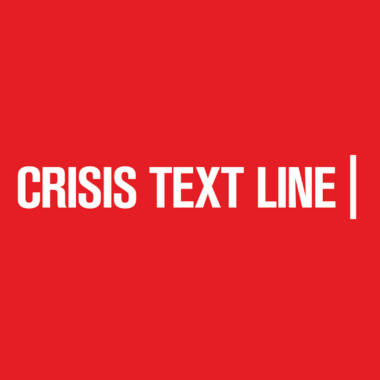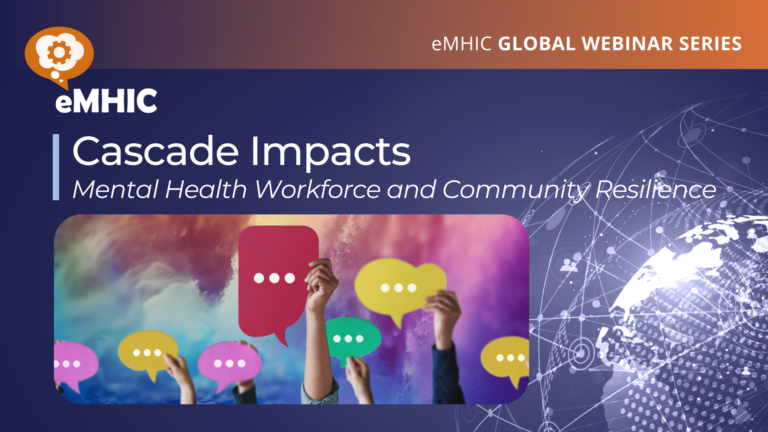Intro
Crisis Text Line is a nonprofit organization that provides free, 24/7, confidential text-based mental health support and crisis intervention in both English and Spanish for anyone in the United States including Puerto Rico. We do this through a digital mental health platform that is powered by trained volunteer Crisis Counselors. Since our launch in 2013, we’ve trained more than 65,000 volunteer Crisis Counselors in the US (88,000 worldwide). These volunteers have supported over 8 million crisis conversations in the US and more than 11.8 million conversations globally over the past decade, collectively donating more than 3 million hours of volunteer time on the platform in the US alone.
The impact that these volunteers have on the lives of texters is clear and unmistakable. However, until recently, little was known about the impact of volunteering with Crisis Text Line on volunteers themselves. We recently undertook research to determine whether and in what ways the benefits of volunteering would extend to this unique, completely digital setting. Here is what we learned.
Volunteering has known benefits for physical and mental health
Volunteering is typically beneficial for volunteers. In young people, volunteering is associated with academic achievement, civic engagement, leadership, and self-confidence. In older adults, volunteering is related to increased longevity, improved physical functioning, and better self-rated physical health, as well as with reduced depression and greater self-esteem. This is because volunteering fosters the development of bigger and stronger social networks, improves mental health by encouraging an enhanced sense of purpose and meaning, and may also reduce harmful thought patterns including excessive self-focus and low self-efficacy that contribute to depression and other mental health problems.
Volunteering can be challenging, and the benefits may apply differently for different groups of people
Most existing research on volunteering suggests that it improves subjective wellbeing of volunteers in general: but it also may be the case that individuals experiencing strong personal wellbeing are more likely to engage in volunteering. At the same time, high-intensity volunteer roles have been associated with emotional exhaustion, stress, anxiety, and burnout.
The benefits of volunteering have been shown to differ across identities. For example, older volunteers tend to benefit more strongly from volunteering, as do individuals from lower socioeconomic groups and those with lower levels of wellbeing at baseline. Ironically, although these individuals may benefit most strongly from volunteering, they may also find it more challenging to access appropriate opportunities to volunteer.
Our recent research evaluates the impacts of volunteering at Crisis Text Line
In 2022-2023, we completed the first formal analysis of the impact of the experience of volunteering with Crisis Text Line on volunteer Crisis Counselors. We surveyed over 3,400 past and present volunteers. Survey respondents mirrored the overall Crisis Text Line volunteer population: they predominantly identified as women (76%) and 34% indicated that their sexual identity was LGBTQ+. About 20% of volunteers self-identified as Asian, 6% as Black, 7% as Hispanic / Latinx, 1% as Middle Eastern / North African / Arab, 67% as White, less than 1% as Native American / Native Alaskan/ Indigenous, less than 1% as Native Hawaiian / Pacific Islander, and 3-5% preferred not to answer regarding their race or ethnicity. We asked a number of both multiple-choice and open-ended questions regarding their experiences at Crisis Text Line.
Developing skills: learning skills that transfer to other aspects of life
We knew that, through our training curriculum, volunteer Crisis Counselors develop a rigorous skill set related to emotional calming, de-escalation, and crisis management that they actively use during their work on the platform as they offer support to texters. These include skills related to active listening, technology use, empathy and cultural humility, and de-escalation.
We were excited to find that these skills transfer to other domains of Crisis Counselors’ lives. These included taking care of their own emotional health: two thirds of volunteers reported using skills learned at Crisis Text Line to cope with their own challenges. In addition, volunteers indicated that they are using these skills to help individuals in their daily lives off the platform, and that they gained skills that allow them to identify signs of suicide risk in community members and to de-escalate tense situations outside of volunteering. These results suggest that volunteer Crisis Counselors are applying the skills they have learned through Crisis Text Line’s training to care more effectively for themselves, for their friends and families, and for individuals in their communities.
Educational and career development: benefiting personally while helping others
Many volunteers indicated that their experiences as volunteers had made them want to pursue career trajectories in fields that involve helping others (or that this experience had affirmed their existing career and educational plans). Notably, half were inspired to continue with their studies, and volunteers with lower level education qualifications as well as those who do not have a qualification in a mental health related field reported an increase in the development of mental health skills through their volunteering experience at Crisis Text Line.
Personal growth: supporting others while developing as individuals
Volunteers indicated that they grew personally as a result of this volunteering experience. They reported feeling a sense of accomplishment through their work of helping others, and more broadly, eight out of ten volunteers also indicated that their work as volunteers provided a greater sense of purpose in their lives. Sense of purpose has been shown to buffer against the detrimental effects of stress and mental health challenges. Volunteer Crisis Counselors also described feeling a strong sense of accomplishment, experiencing greater emotional maturity, and feeling that they had developed resilience to deal with their own mental health challenges, with two thirds attributing practicing self care and mindfulness to their Crisis Text Line experience.
Social connections: from isolated training to a greater sense of community
Volunteers described notable interpersonal benefits that were not specifically targeted by our training but which may have developed or evolved organically as a result of training, platform experiences, and/or through the act of volunteering in this context. Most notably, during this era of growing social isolation, disconnection, loneliness, and social upheaval, volunteers indicated that their experiences at Crisis Text Line helped them feel more connected to other people in their communities outside of Crisis Text Line, and eight out of ten volunteers indicated that this experience enabled them to affirm humanitarian values including respect for diversity. This is a particularly striking outcome given that our training and subsequent volunteer work is conducted completely online: this work strengthens human connections among and between diverse populations beyond the digital mental health platform. Social connections buffer against mental health challenges including stress, anxiety, and depression; volunteers who grew in their social connectivity may also have increased their overall resilience. Importantly, while the positive impact of volunteering with Crisis Text Line is widespread overall, a number of historically marginalized and underserved populations report particularly high levels of social benefit from the experience, feeling more connected to others, improved quality of personal and work relationships, and a stronger sense of belonging to their communities.
Agents of change: from helping one person to helping us all
Volunteers indicated that their experiences at Crisis Text Line had resulted in growth in their desire and willingness to become agents of change in their broader communities. Volunteers indicated growth in their tendency to see themselves as people who can influence positive change in others’ lives and in communities. They expressed greater interest in advocating for public policy changes to support the mental wellbeing of others, and in engaging in public or nonprofit service.
What we’ve learned and where we’re headed
Volunteering at Crisis Text Line is a unique volunteer experience in several ways: the training and work itself are conducted completely online; the conversations are text-based; and the experience can include very high levels of emotional intensity. Through our recent research on the impact of Crisis Text Line, we have learned that regardless of these factors, our volunteers accrue strong benefits through this experience. Some of these benefits are consistent with the broad existing literature on the general benefits of volunteering, including greater social connections and stronger sense of purpose.
Other benefits are likely more specific to Crisis Text Line’s training and mission, including applying specific skills to promote emotional regulation and recognize and address crises in themselves and others in their communities; promotion of career trajectories in the helping professions; greater resilience to deal with personal mental health challenges; and the desire to be social change agents and advocate for the mental wellbeing of others. While some volunteers did express concerns related to stress, time management, and burnout, overall these results suggest that Crisis Text Line’s model is robustly successful in contributing to the wellbeing and development of volunteers and society beyond our digital mental health platform.
The need for text-based crisis support has never been more pressing. Understanding the impact of volunteering in this setting is a critical need, particularly as these services expand to meet the needs of diverse populations and individuals in crisis worldwide. These findings can serve as a robust starting point for future work that examines in more detail how volunteers develop, and how to optimize wider social impacts through this form of online service.





